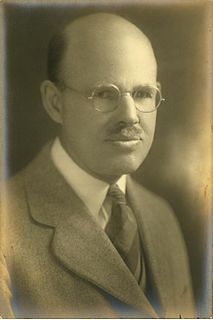A Quote by Emmeline Pankhurst
One does not expect to be comfortable in prison. As a matter of fact, one's mental suffering is so much greater than any common physical distress that the latter is almost forgotten.
Related Quotes
There is much suffering in the world - physical, material, mental. The suffering of some can be blamed on the greed of others. The material and physical suffering is suffering from hunger, from homelessness, from all kinds of diseases. But the greatest suffering is being lonely, feeling unloved, having no one. I have come more and more to realize that it is being unwanted that is the worst disease that any human being can ever experience.
Being human, we would expel from our lives physical pain and mental anguish and assure ourselves of continual ease and comfort, but if we were to close the doors upon sorrow and distress, we might be excluding our greatest friends and benefactors. Suffering can make saints of people as they learn patience, long-suffering, and self-mastery.
[S]uppose the mind of [a] friend of humanity were clouded over with his own grief, extinguishing all sympathetic participation in the fate of others; he still has the resources to be beneficent to those suffering distress, but the distress of others does not touch him because he is sufficiently busy with his own; and now, where no inclination any longer stimulates him to it, he tears himself out of his deadly insensibility and does the action without any inclination, solely from duty.
When the shoe fits, the foot is forgotten; when the belt fits, the belly is forgotten; when the heart is right, "for" and "against" are forgotten. There is no change in what is inside, no following what is outside, when the adjustment to events is comfortable. One begins with what is comfortable and never experiences what is uncomfortable, when one knows the comfort of forgetting what is comfortable.
If a person's basic state of mind is serene and calm, then it is possible for this inner peace to overwhelm a painful physical experience. On the other hand, if someone is suffering from depression, anxiety, or any form of emotional distress, then even if he or she happens to be enjoying physical comforts, he will not really be able to experience the happiness that these could bring.



































